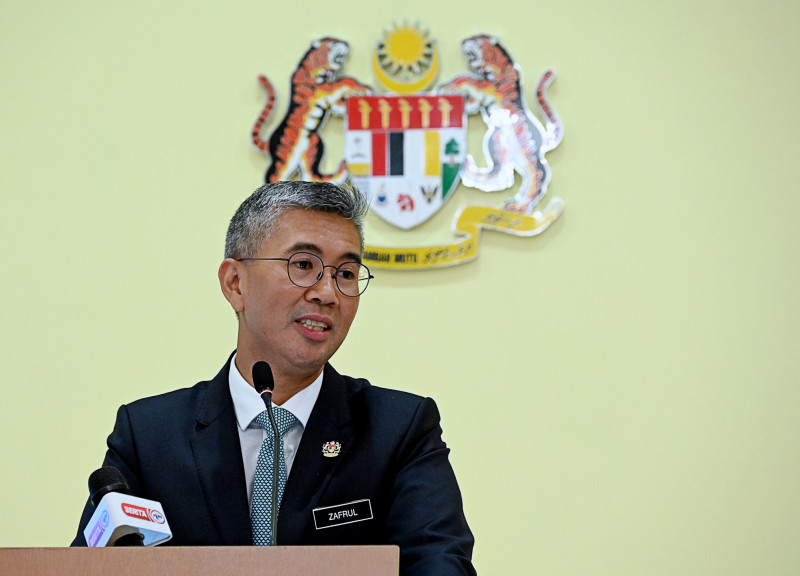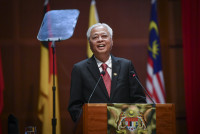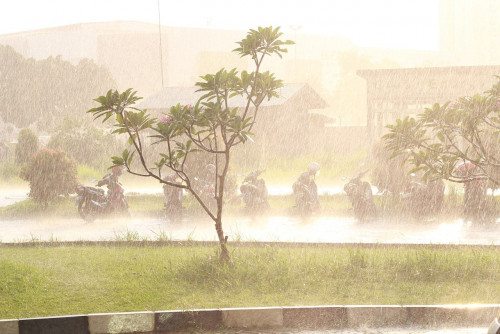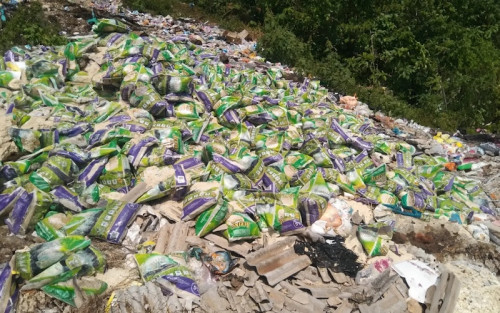KUALA LUMPUR – It came as no surprise when Finance Minister Datuk Seri Tengku Zafrul Tengku Abdul Aziz took the stage yesterday evening to announce an expansionary budget with the largest allocation ever of RM332.1 billion compared with previous budgets.
This is to address the immediate need to boost the nascent economic recovery and the political compulsion ahead of a potential election next year.
But despite a spending package that focuses predominantly on a development expenditure of RM75.6 billion, it fell short of the RM80 billion that we had in mind.
Given the focus on development expenditure in the five-year 12th Malaysia Plan – and talk about pushing it up to a total of RM400 billion over the period – we had assumed that the government would want to go big to show it is serious about everything.
Prof Geoffrey Williams, an economist at Malaysia University of Science and Technology, described Budget 2022 as a fairly normal budget with an increase in total allocation and the normal shopping list of projects.
“But it didn’t have the feel of a budget for growth and recovery, nor did it appear to be generous enough to be an effective pre-election budget.
It missed an opportunity to provide universal help to a wide range of people, and instead came with the same old approach of targeting special groups and projects with relatively small amounts – most of which will either not be allocated or will have little impact.
“It certainly didn’t do very much to address the structural problems in pensions, welfare, or unemployment, but it does offer some good news for small and medium enterprises (SMEs) and businesses generally,” he said.
He also said the total allocation of RM332.1 billion for 2022 is slightly less than 3% more, compared with RM322.5 billion allocated for 2021.
“This is below expectations and raises questions about whether this will provide the fiscal support needed to ensure a firm recovery.
“The extra RM9.6 billion works out at only RM290 per person over the year, or RM24 per person per month.
“By contrast, the special allocation of RM11.4 billion for Bumiputera programmes is around RM600 per person in this group, or RM50 per month.”
Good news for businesses
Williams opined that those in the tourism sector will be quite disappointed with only RM1.6 billion in aid.
“But we had also advised that opening up the economy and removing standard operating procedures and other restrictions will be of more benefit.”
Having said that, Williams said the support for SMEs is very welcome.
“The RM14.2 billion to support the expansion of SMEs, RM2 billion in targeted relief and recovery facilities for businesses, and RM3 billion to support companies affected during the pandemic are very much in line with what we had hoped.”
In addition, Williams said the RM2.1 billion for the Cooperatives Commission of Malaysia for equity investments and RM1.8 billion in micro-credit financing schemes through Tekun, Agrobank, Bank Simpanan Nasional, Bank Rakyat, and Bank Negara Malaysia will all provide extra sources to restart, rebuild, and recover.

“Overall, RM40 billion for funding programmes for entrepreneurs – including interest-free grants up to RM10,000 from Tekun – is in line with what we had suggested before the budget speech.
“The RM30 billion to strengthen government-linked companies is intriguing and many people will ask how, where, and why this money will be spent.
“Hopefully, it can be spent wisely and transparently to create leveraging opportunities for SMEs in the supply chain.”
Williams said that the government’s aim to increase consumer spending via a reduction in the minimum Employee Provident Fund (EPF) contributions from 11% to 9% until June 2022 is nevertheless going to hold back the rebuilding of pension funds.
He said RM30 million for the i-Saraan EPF initiative is worth around RM7.90 per individual employed in the informal sector, and does not really address those out of the labour force, or in otherwise low-paid or precarious jobs.
“We still have a structural problem in pensions that needs to be addressed.”
Addressing the unemployed
When it comes to employment, Williams said there is RM2,000-RM7,000 in tax relief for those who take courses to improve their career prospects, but they have to pay the fees first and offset them against taxes.
“In many cases, they will not reach the tax threshold and won’t need the relief, so the scope of this could be quite limited.”
The RM4.8 billion for the job guarantee programme to create 600,000 jobs represents an allocation of RM8,000 per person a year, or RM667 per month, which also does not seem sufficient to create so many jobs.
“Similarly, RM2 billion in incentives to hire the unemployed is worth around RM2,600 per person for one year, or RM216 per month, and again doesn’t seem enough to address structural unemployment and underemployment issues,” he said.
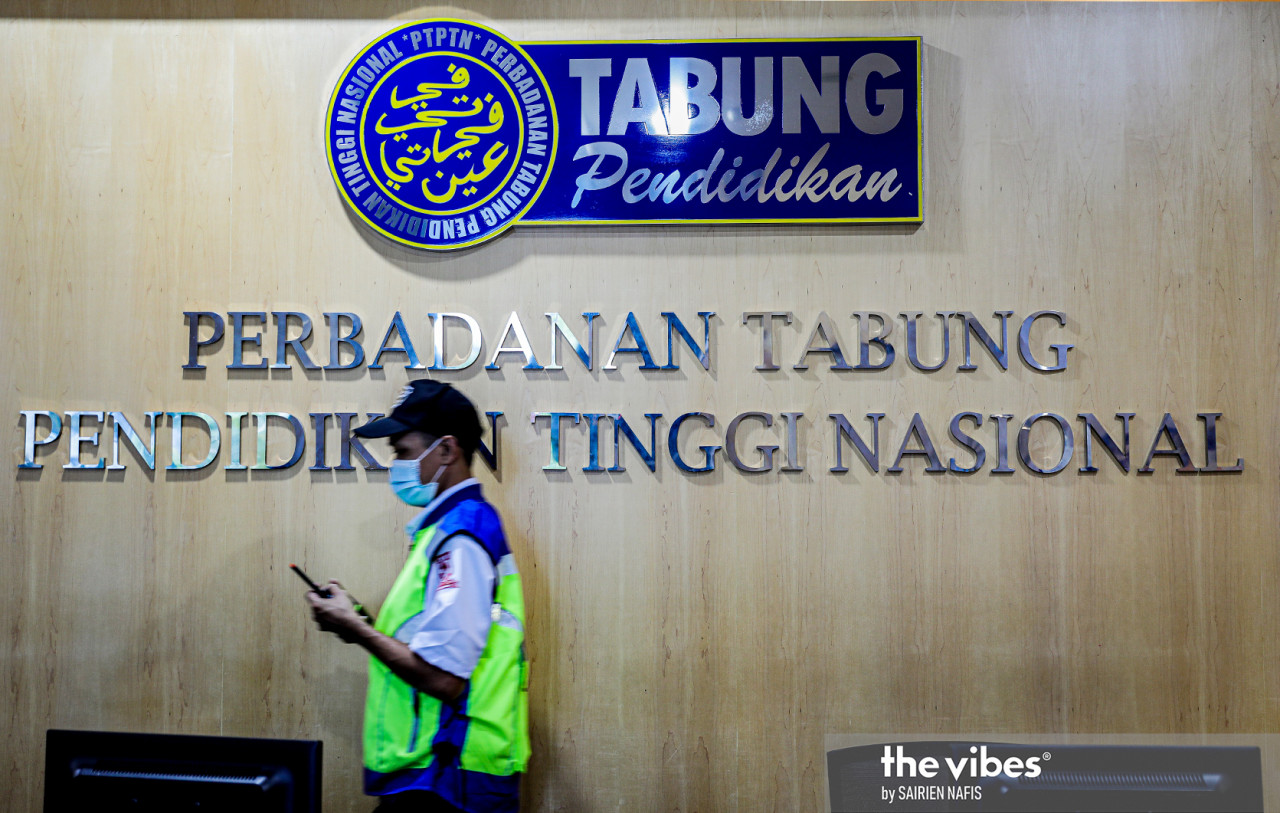
Higher education, according to Williams, also does not appear to be a priority with an allocation of RM14.5 billion for 2022 compared with RM14.4 billion for 2021 – and nothing in particular for private higher education that has been hit hard by lockdowns.
“While the government will give between 10% and 15% discounts on repayment of PTPTN (National Higher Education Fund Corporation) loans, the truth is that this will not address the structural instability in PTPTN.
“It will increase the costs to the government and reduce the repayment income, but it will hardly make a difference to lenders. It remains structurally unsustainable, as PTPTN itself noted in 2019.”
Williams also said the government’s allocation of RM150 million for three million students, which is worth RM50 each, is barely enough to pay for their lunch for a week.
He said the Fiscal Responsibility Act to improve governance, accountability, and transparency of the country’s financials will be an important step – and hopefully, offer the opportunity for an independent fiscal oversight body to scrutinise government finance.
“The tax identification number to come into force next year is also an important move that could pave the way for a more efficient welfare system through tax credits to those below the minimum income threshold.”
How effective is windfall tax?
Commenting on the RM100 million threshold for the newly introduced windfall tax, Williams said it is too low and may affect investor sentiment.
“I think windfall taxes should be avoided as a general rule. They don’t raise much revenue and they act as a disincentive to business and investment. The new threshold of RM100 million is actually very low – and for companies and investors, it will be quite a shock and quite disappointing,” he added.
OCBC Treasury Research said the windfall tax is slated to be a one-off initiative due to the government’s high expenditure requirement, given the pandemic situation.
“Still, it would come as quite a bit of a bite for some companies.”
Elsewhere, the government has introduced a tax on incomes from overseas sources with effect from January 1, 2022.
Such new initiatives have to be seen in the broader context of how the government is trying to thread the needle of pursuing a still-expansionary expenditure outlay, while keeping the deficit broadly in check.”
It also said these new initiatives should give the government some uptick in tax revenues, but fundamentally, the supposedly one-off nature of the windfall tax (and uncertainty about how the global taxation will be rolled out and implemented) means that the revenue stream remains dependent on the “usual suspect” of petroleum revenue.
“Specifically, the government is projecting an amount of RM43.9 billion of petroleum revenue, with more than half coming from dividends from state-owned oil and gas company Petronas.
“At 18.8% of total revenue, the proportion is a tad lower than the 19.2% it expected for Budget 2021.
“Still, it remains considerably higher than the 13.2% of total revenue seen in 2016 during the period of the goods and services tax’s (GST) imposition.
“Hence, despite the favourable headline about a lower petroleum dependence, the fact of the matter is that the fortune and stability of government revenue remains very much wedded to the fickle flow of global oil prices.”
The research house said overall, the uptick in spending should help to keep the economic recovery momentum going into 2022.
“However, the darker outlook surrounding the big export market of China and the prospect of a global economy that remains tied to the pandemic’s out-turn mean that assuming growth of as high as 6.5% next year still strikes us as being too optimistic, even if we see some upside risks to our admittedly staid 4.3% growth,” it added.
Welcome removal of real property gains tax
Some good news, and some very bad news – that is how tax and chartered financial consultant KP Bose Dasan described Budget 2022.
“The good news is the removal of the real property gains tax from the sixth year onwards for citizens, residents, and companies. Not sure about non-citizens.
“The very bad news is the taxation of foreign income from January 1, 2022 onwards,” said Bose, whose specialty is tax planning for general wealth accumulation and retirement planning.
He said remittance of income has been excluded from tax from the year assessment 2004 for all businesses except shipping, air transport, and banking and insurance businesses.
“This will have wide repercussions. In a situation where we are fighting for foreign direct investments, the taxation of foreign income remittance will make Malaysians accumulate foreign income outside Malaysia.”

GST delayed, paving path to recovery
CPA Australia tax committee chair for Malaysia Alan Chung said with the Malaysian economy in recovery mode, it is appropriate that the government has not announced any major new taxes in this budget – with the possible exception of the introduction of tax on foreign sourced income.
“Delaying reforms such as the possible reintroduction of GST will allow businesses to focus on their recovery.
“The exemption for social enterprises for the next three years is another good step to enable the local economy to regain its footing and assist with providing employment to vulnerable and marginalised communities,” he said.
“Malaysians, including Bumiputera-centric institutions, have placed large funds overseas. There will be drastic consequences to the investment world.
“It may be a question of penny-wise and pound-foolish. The tax collected may not undo capital outflow and negative investor sentiment.”
Meanwhile on the one-off “cukai makmur” or prosperity tax of 33% on chargeable income above RM100 million, Bose said this seems reasonable if shareholders are not poor.
“Their dividends will be affected. Making more than RM100 million in 2022 will be considered remarkable.”
On another note, Bose said the exemption of indirect taxes for electric vehicles is a step in the right direction. – The Vibes, October 30, 2021



